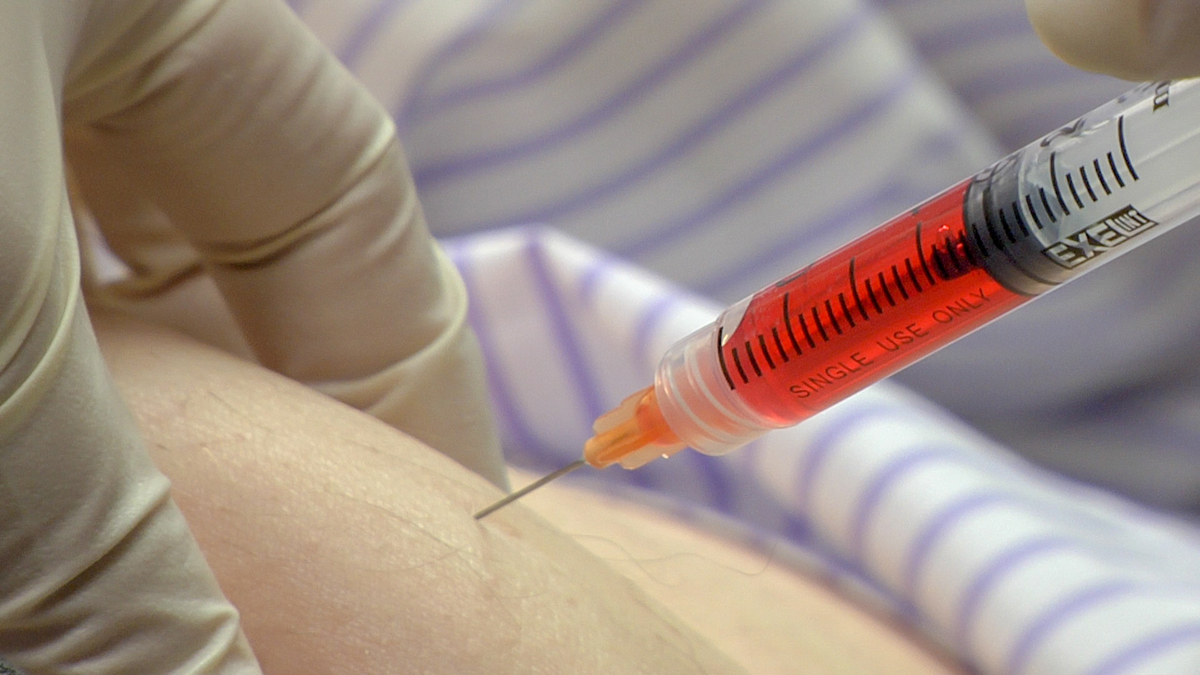
Vitamin B12 (cyanocobalamin) belongs to B group of vitamins which are hydrosoluble and play many different, important roles in the human body. Vitamin B12 in particular allows the brain and the entire central nervous system to function properly and it also participates in the synthesis of red blood cells. The vitamin is known to be associated with pernicious anemia, an autoimmune disease characterized by destruction of parietal cells of the stomach, the ones in charge of production of intrinsic factor. This factor allows proper absorption of vitamin B12 and once it starts lacking the body simply cannot obtain sufficient amounts of the vitamin. As a result one develops vitamin B12 deficiency and all the accompanying health issues.
Vitamin B12 Deficiency
Lack of vitamin B12 can be successfully compensated for and with timely treatment most patients avoid hazardous consequences of such deficiency. However, not all the patients are that lucky and some may end with irreversible damage to nervous tissue caused by long-term vitamin B12 deficiency.
The deficiency itself mostly develops once parietal cells of the stomach stop synthesizing intrinsic factor. The factor assists the absorption of the vitamin from the small intestine this way maintaining its optimal level in the blood. Many times pernicious anemia stays undiagnosed for many years and patients turn to their doctors only once the symptoms caused by vitamin B12 deficiency escalate. Fortunately, the disease is treatable and with vitamin B12 injections that are administered on a regular basis for the rest of one's life the level of this substance is maintained within desirable range.
Now, when it comes to symptoms of pernicious anemia and associated vitamin B12 deficiency they occur in the form of a characteristic triad. Namely, all patients without exception develop anemia, gastrointestinal symptoms and neurological symptoms. Anemia occurs in the megaloblastic form i.e. patients develop megaloblastic anemia. Gastrointestinal symptoms are a consequence of the autoimmune attack on the specific cells in the stomach (parietal cells) while neurological symptoms usually include sensory or motor deficiencies. In more complex cases patients may develop subacute combined degeneration of the spinal cord or even dementia as well as other psychiatric symptoms.
Use of Cyanocabolamin Injections
Cyanocobalamin injections are a standard treatment for people suffering from pernicious anemia. They are also administered in other instances. For example, the vitamin may be necessary for patients suffering from poor nutrition (malnourishment), stomach/intestinal problems non-related to pernicious anemia, certain infections and cancers. By timely recognizing the need for B12 injections and the onset of treatment within reasonable time, most patients successfully avoid all the detrimental complications vitamin B12 deficiency brings along.
The injections are administered into a muscle or under the skin. The dose is determined by the condition the person is suffering from and also according to doctor's recommendations. Under certain circumstances injections may be administered daily. However, in patients in whom absorption of vitamin B12 is disrupted for the rest of their lives injections are administered every month.
There are certain side effects associated with vitamin B12 injections. First of all, some people may experience pain or redness at the injection site. Also, one may have mild to moderate diarrhea. A feeling of swelling all over the body is one more potential side effect. Although these symptoms are well tolerated in case they intensify, one is due to consult a health care provider without hesitation.
Sometimes vitamin B12 shots may precipitate hypokalemia, a lower-than-normal amount of potassium in the blood. This side effect is closely connected with muscle cramps, weakness and irregular heart beat all of which require immediate medical assistance and discontinuation of the injections.
Finally, in rare cases patients may experience chest pain along with shortness of breath, weakness on one side of the body, vision changes that develop all of a sudden and slurred speech. These side effects also require prompt evaluation and adequate treatment.
Patients who are allergic to Cyanocobalamin or cobalt must inform their health care provider and are under no circumstances supposed to receive vitamin B12 injections. If they fail to report allergy and receive a shot, they may easily develop severe allergic reaction in the form of rash, itching or swelling of the face/tongue/throat, severe dizziness and breathing difficulty.
Apart from the mentioned it is also essential to inform a doctor of a pharmacist about all the medications that are currently taken i.e. the ones that are taken on a regular basis. It is not good to discontinue any drugs before consulting a health care provider. Also, it is of utmost importance to report any herbal products or other supplements that are being taken. Some of them may interfere with blood cell production so in spite of sufficient amounts of B12 vitamin in the body obtained via injections the body simply might not be able to produce blood cells.
Overdose with vitamin B12 is practically impossible because the dose is well calculated and medical professionals administer the injections routinely without any mistake. Still, if the overdoes is suspected, one should contact local poisoning center or emergency room straight away.

















Your thoughts on this
Loading...